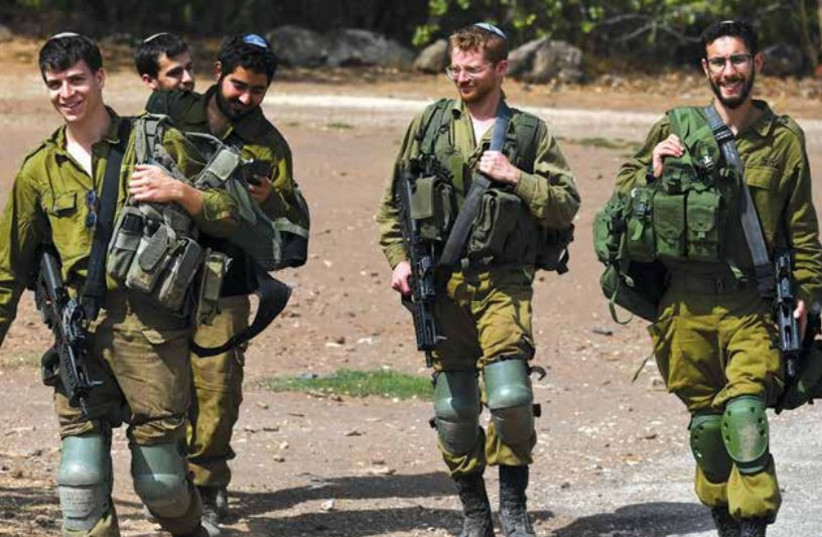Reservists who were lone soldiers will now be recognized by the IDF as “lone reservists” and receive additional benefits, the Knesset Immigration, Absorption, and Diaspora Affairs Committee announced Wednesday.
Lone soldiers include those serving in the IDF whose parents live abroad and soldiers who are not in contact with or not supported by their parents.
The decision means that nearly 8,000 reservists who were lone soldiers in their regular service will receive this status and the accompanying benefits, including gift cards, subsidized flights, mental-health care, and additional returns on expenses.
To qualify for the status of lone reservist, one must have been a lone soldier upon his or her release from regular service, no more than 10 years remain until release from regular service, and has served more than 60 days of reserve duty during the Israel-Hamas War.
Understanding the importance of this decision requires the realization that “life for active-duty lone soldiers does not get simpler upon their release,” said lone reservist EliNoam Horesh of Ach Gadol, an organization that works with lone soldiers.

“Oftentimes, a lone soldier’s exit from the welfare infrastructure of the IDF means that they will have fewer tools to deal with the underlying challenges associated with going without a familial support system in Israel,” he said. “The next steps are a formal statement and, eventually, for the definition to pass into law.
“Moreover, as a lone soldier in reserve duty, being responsible for a family – a spouse, children, or parents who have immigrated after their adult child and are reliant on them for support during their own integration – means that there is extra load on these lone reservists and represents an added mental-health burden.”
An important step
There are still a few gaps still left by the new definition, Horesh said, including lone soldiers who were married during their army services, Mahal [noncitizen IDF] volunteers, and officers without familial support, who do not qualify. Nevertheless, “this new status is still a landmark achievement,” he said.
Wings program director and Lone Soldier Organization Forum head Hila Solymani-Nemet said: “As the wife of a lone reservist, I am well aware of the importance of recognizing this population and the challenges they face. Today, the State of Israel has taken an important step for lone reservists, who will receive a dedicated and unique response that acknowledges them and their needs.”
Knesset Immigration, Absorption, and Diaspora Affairs Committee chairman Oded Forer (Yisrael Beytenu) said: “The IDF now has a better understanding of the needs of lone reservists and has provided them with appropriate solutions. The IDF has collaborated with us in recent months, leading to an increase in benefits for lone soldiers.”
